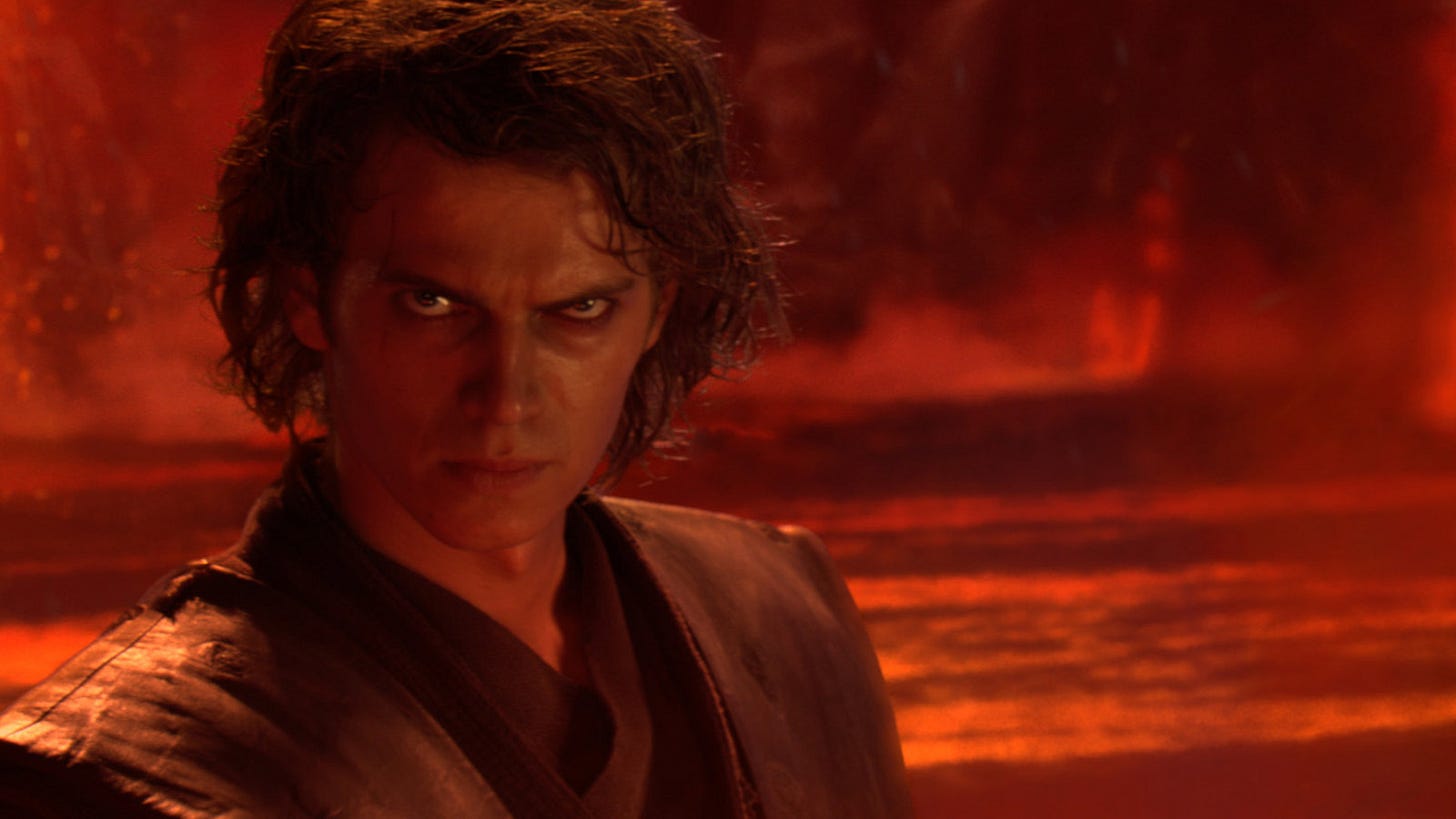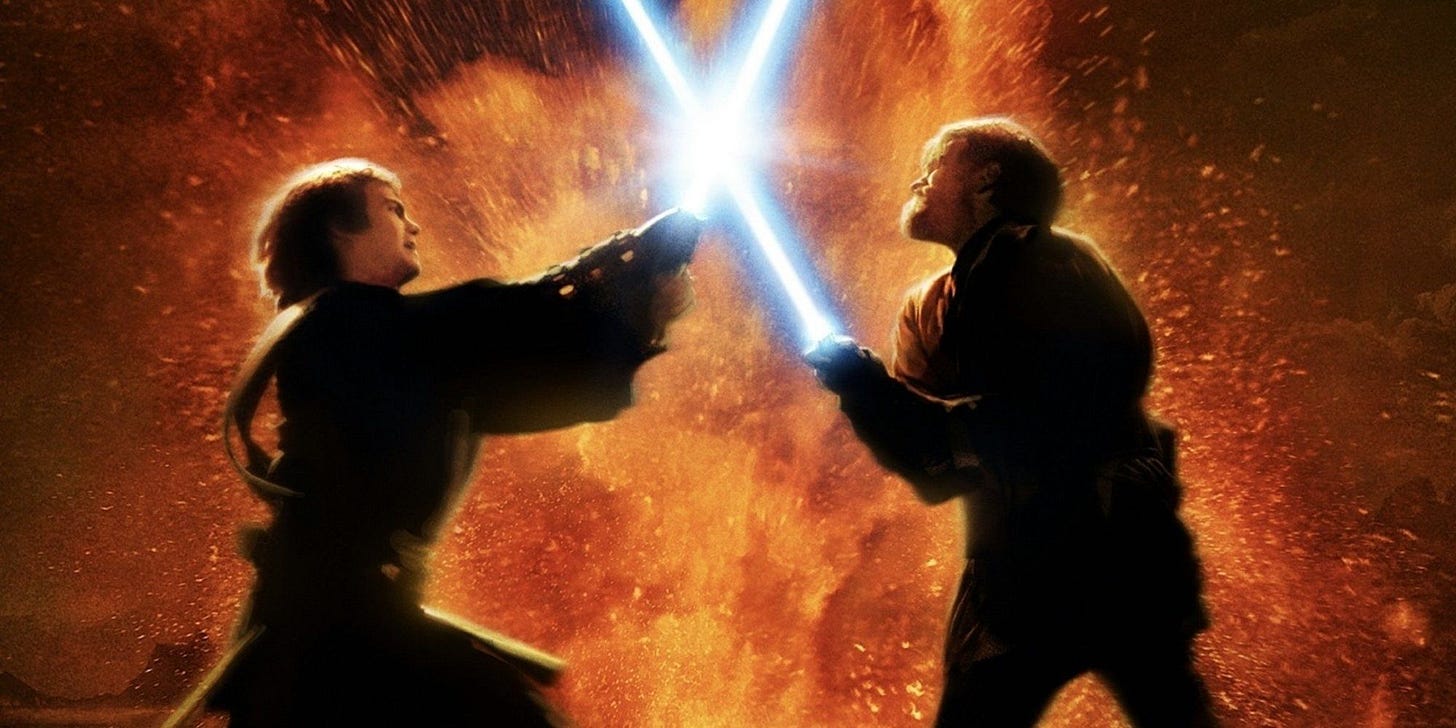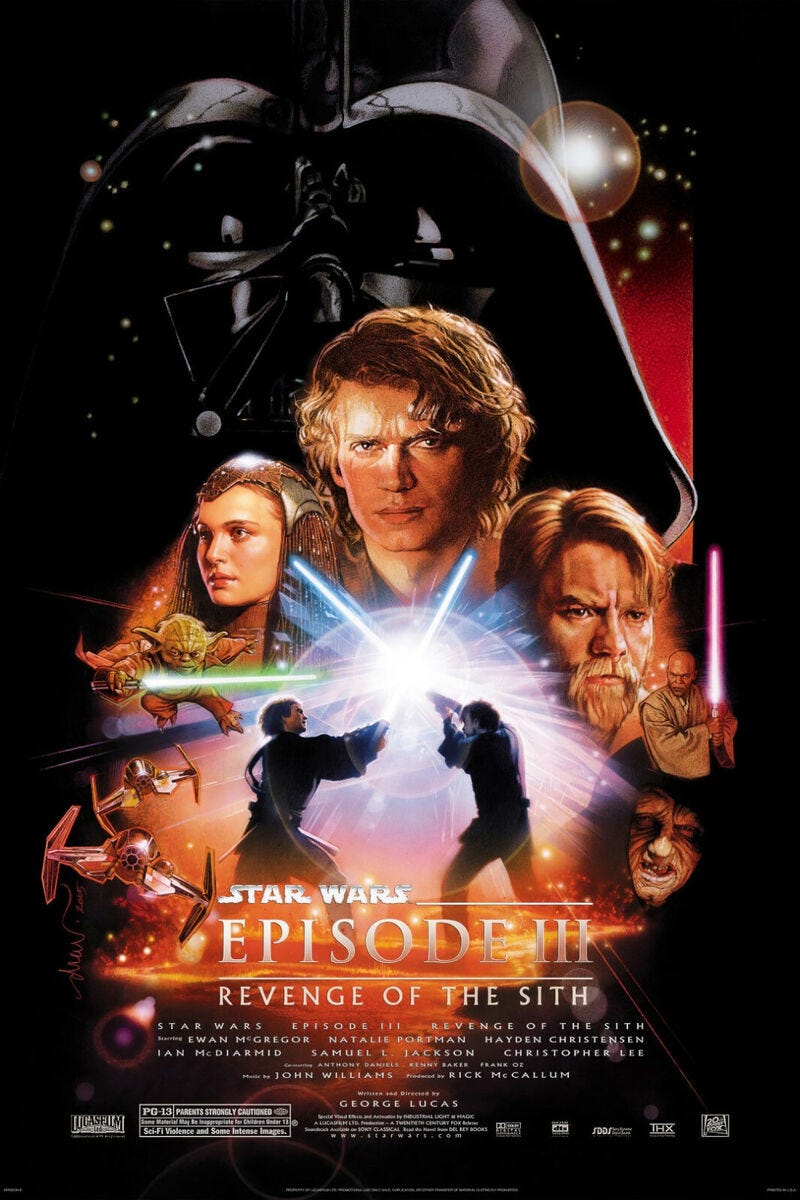I was really, really looking forward to writing about Crimes of the Future — one of my personal favourite films of 2022 — this week. But then, I received some news this past weekend that set off alarm bells in my brain, so now I’ll be writing about crimes of the present.
For those of you who may not be aware, Stephen Miller — Donald Trump’s homeland security advisor and deputy chief of staff for policy, and one of the most prominent figures in the MAGA organism — revealed early this past weekend that the current US administration is actively looking at suspending habeas corpus.
And for those of you who may not be aware of that (the Trump administration doesn’t want you to be, by the way), habeas corpus is — in the United States — a constitutional right that imprisoned or detained individuals have to petition for their release if they believe unlawful detainment has occurred against them.
Without habeas corpus, the Trump administration could detain anyone they please — including American citizens who have not committed any crimes — without having to answer to the courts.
I’m choosing to believe that you, dear reader, do not need to be told how unthinkably horrifying this is. That’s not why I’m telling you this today.
No, the reason I’m telling you this also has to do with the reason that I’ve chosen to write about Revenge of the Sith in tandem with this, and I promise you in my heart of hearts that I’m going somewhere here.
I believe Revenge of the Sith to be the best film in the Skywalker Saga, solely because I’ve found it has the most to chew on. Specifically, this is a film about how a monster is created out of a human being — the very metamorphosis that Donald Trump underwent far, far too long ago, sans the space fantasy bells and whistles.
If someone were to watch Revenge of the Sith whilst completely oblivious to any other aspect of Star Wars lore, much would still be clear to them about Anakin Skywalker. For one, he has a good heart — he loves his wife Padmé and friend/master Obi-Wan, he immediately alerts the Jedi about Palpatine upon discovering that he’s a Sith lord, and he even checks Obi-Wan’s language when he teeters on using a droidphobic slur (“crossed wires”) during a time when anti-droid sentiment is rampant on account of the Clone Wars. Anakin is totally bossing this whole human being game.
The second thing about Anakin that’s clear from the start is that he’s under a lot of pressure. He’s quite young — often leveraged by others as a point of shame — and yet his head is being filled with the “chosen one” narrative, all while serving heavily in the Jedi council with the looming weight of fatherhood on his shoulders. This, while being forced to keep his marriage to Padmé a secret, and not having the trust of the Jedi council, who refuse to grant him the title of Master despite all the responsibilities (some off-book) he’s taking on. Padmé tries — though arguably very far from her best — to get through to Anakin, but he’s too hyperfocused on keeping Padmé safe and worry-free for her to be any real help.
Hayden Christensen’s performance has been heavily scrutinized in tandem with the weak dialogue (dialogue being something that George Lucas has openly acknowledged his weakness in as a writer).
But if you ask me, both of these things (the performance and dialogue for Anakin specifically) loan themselves quite effectively to the image of an impressionable, emotional young man who perhaps hasn’t been socialized very well. I believe that characterization to be key to this portrait that Revenge of the Sith is painting, as you’ll likely see in a minute.
The third and final thing that’s clear about Anakin is that he’s the latest in a long line of men who have been backed helplessly into a corner of emotional suppression:
YODA: Careful you must be when sensing the future, Anakin. The fear of loss is a path to the dark side.
ANAKIN: I won't let these visions come true, Master Yoda.
YODA: Death is a natural part of life. Rejoice for those around you who transform into the Force. Mourn them, do not. Miss them, do not. Attachment leads to jealousy. The shadow of greed, that is.
ANAKIN: What must I do, Master Yoda?
YODA: Train yourself to let go of everything you fear to lose.
Indeed, Jedi are taught to forego their emotional attachments so as to fulfill their duties of monastic peacekeeping. And at the center of the current Jedi dynasty is Anakin, who bears the weight of the galaxy on his young shoulders, fears the childbirth-induced death of his wife, and is told to ignore these emotions.
And if you ignore emotions, they will find another way out.
Enter Palpatine, who encourages Anakin to utilize his emotions instead of suppress them, thereby accepting all of who he is and instilling a sense of safety in him. Palpatine, who makes the most grotesquely tall promises — namely, Padmé’s assured safety — to Anakin in a none too different manner that Trump promises his followers.
Tell me Donald Trump has never promised anyone the secret to eternal life and/or resurrection before.
So now we have Palpatine acting as what’s effectively the only safe space for Anakin’s emotions, which allows Palpatine an element of control over him that Anakin’s virtuous default nature can’t overcome — for Anakin, it feels like he can no longer afford to worry about doing the right thing, because this is now about survival.1 Not just Padmé’s survival, but emotional freedom for himself as well.
Palpatine, of course, is a very bad dude, and with Padmé’s safety as the primary carrot upon the stick of Anakin’s emotions — emotions that the Jedi have all but ignored out of what could most aptly be characterized as self-righteousness — Anakin is ultimately led down the path that will install him as Darth Vader, the most dangerous instrument in the modern-day Republican Pa- I mean, Galactic Empire.
And now, I’m going to tie this back to the habeas corpus situation.
Anti-fascism is the thematic birthplace of the Star Wars canon (starting with the original film in 1977, of course). So, generally/academically speaking, the best version of any piece of Star Wars media overtly deals in themes of authoritarianism, fighting for freedom, or at least skepticism of the system surrounding you. This, because that’s what Star Wars is.
It can of course evolve beyond that but, realistically, you can only stray so far from these things before it’s no longer Star Wars.
In this regard, what I find so fascinating about Revenge of the Sith is that it offers us a meditation on how these authoritarian regimes well and truly begin — not politically, but on a human level.2
And folks, they happen by letting emotionally exploitable men believe in a significant destiny as they’re led down the only path that they feel accepted by; one of anger, power, and pseudo-divine ordination. This film — framing both Palpatine and the Jedi as equally responsible for this — is not afraid of the grey complexities that populate this state of affairs.
Compare this to the original trilogy, which is decidedly and rightly mythical in its presentation of the Rebel Alliance versus the Galactic Empire — it’s strictly, black-and-white good versus evil because, at this point, it has to be.
Indeed, from A New Hope onwards, Luke and company — and, by extension, us viewers — don’t have the luxury of philosophizing how this evil happens, parsing its nuances, and maximizing the morality of our response to it, because that chance has come and gone with Revenge of the Sith. Now, they can’t afford to do anything less than fight the evil that has taken root in the galaxy, lest every pause, every hum, every haw, and every “Well, actually…” only give more literal and ideological space to the Empire, who will not be so hesitant.
Folks, we are living the original trilogy right now. Habeas corpus has been suspended only four times in the history of the United States — once during the Civil War, once during Reconstruction (chiefly in response to the Ku Klux Klan), once during WWII following Pearl Harbour, and once during the Philippine–American War.
If Stephen Miller gets his way, the Trump administration will be unleashing a tactic marked exclusively for actual wartime conflicts and invasions, which the Trump administration has significant if not total power to define.
The targets? Anyone they deem undesirable. Google Rümeysa Öztürk to get an idea of who that looks like for now, and know that it will not stop there. Whether or not they’re successful in suspending habeas corpus — per the discretion of Congress — is secondary to the fact that they’re make a play like this at all.
And this administration? They’ll tell you that it is an invasion, that the human beings they target are all threats to national security, that they represent a geopolitical hostility, that they committed treason against the Senate and the Galactic Republic. They’ll tell you all of this, and they will not provide a shred of evidence to back up their claims, because, by way of this specific regime having been peacefully installed by voters, it effectively has permission to do as it pleases.
And so, just as Yoda — after lecturing Anakin on emotional suppression at the beginning of the film — now tells Obi-Wan to use his feelings to find Anakin, we too have arrived at a place where we can no longer afford to perch upon or preach what we think to be a higher or better way of being, because the Trump administration is threatening the mere act of being altogether. The American people must come together as a people, protesting against this regime and protecting one another while they still can.
That’s why I’m talking about Revenge of the Sith and Star Wars today — not to illustrate what a poignant portrait of dictator grooming this film is, but to highlight that there is a time for studying the evil from a distance, and a time for standing against the evil when that distance has been ripped away from us. Standing must happen now. Protest this administration, know your rights, blow up the Death Star, protect your vulnerable neighbours, be disgustingly unkind to the perpetrators and enablers of this administration, learn the ways of the Force. Do not let thunderous applause be the legacy of the boot that’s crushing real-life liberty.
I’ll finish this off by saying that I, dear reader, am not a liberal. I’m a humanist, and I refuse to insult the essence of human rights, compassion, and freedom of expression by subjecting them to the lens of what’s now this warped machine of partisanship. The only “us versus them” that there has ever been is human beings (us) and the torturous systems that too many people fearfully turn themselves into cogs for (them). Miller and Trump are two of these people — men-turned machines who have ceded their personhood to these very institutions that destroy and divide human beings. These people are the only enemy.
I spend no energy blaming anyone for how we got here — I look at what I can do to make this world better. For now, that means me, an anxious Canadian, using what small platform I have to unapologetically urge change, resistance, and compassionate action with the language I’m most fluent in — film, in all its genre-spanning universality.
Remember this.
On a related note,
wrote an utterly fantastic piece on how Revenge of the Sith’s use of unchanging technical form calls attention to the calm, understated devastation that so often ushers in this sort of political tragedy. She’s a tremendous critic, and you’ve everything to gain from reading her work.









Apparently, Tom Stoppard consulted on the script. My pet theory is he wrote the Darth Plagueis stuff. It’s way too juicy to be Lucas.
I really loved what you said about Palpatine being the only space where Anakin’s emotions are actually heard. That gives him this quiet psychological hold that makes the whole turn feel inevitable. I also thought you handled the Jedi really well too, by holding them accountable without making it one-sided or simplistic. That balance was one of the strongest parts of the piece. Also, thank you for the shout-out and the kind words, you didn’t have to, and it honestly meant a lot